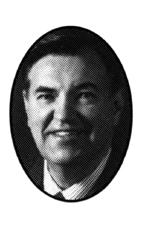The number of troops will not change. In connection with this decision, the government will consider the possibility of redeploying some Canadian troops to the Balkans theatre, if that is what the United Nations Protection Force Command wishes, to provide maximum support for the current effort to achieve peace.
In making its decision, the government took into account the encouraging progress that has been made in the area. Specifically, ceasefires have been negotiated and observed in Sarajevo. The Archbishop of Sarajevo was here in this House a moment ago, and this seems an opportune time to make this statement when all parties involved are trying to find a peaceful solution to the conflict in Sarajevo. We should also say that ceasefires have been negotiated throughout Central Bosnia, the parties in the conflict have begun serious negotiations, the airport in Tuzla has been turned over to the United Nations, and our unit in Srebrenica has managed to leave the enclave and rejoin its battalion in Visoko.
I can say today that Canadian soldiers carried out in Srebrenica an outstanding mission that brings credit to the Canadian armed forces.
We are now in a situation where major steps have been taken toward a peaceful solution, in particular the agreement between Croats and Muslims in Bosnia to form a Confederation. It is important to underline the vital diplomatic intervention of the Americans, who invited Croatian and Muslim representatives to Washington and helped them take this very big step toward peace.
Ceasefires have helped create an atmosphere of negotiation, facilitated the delivery of humanitarian aid and reduced the danger for the troops stationed in the area.
Canada has been a full participant in the diplomatic talks surrounding these developments in NATO, the United Nations and other forums. On the international scene, Canada has a duty to speak up whenever it does not agree with something but it also has an obligation to protect the unity of the allies. That is what the Prime Minister of Canada did at the NATO summit in Brussels when he vigorously opposed a military escalation in favour of diplomacy. Canada delayed the use of air strikes that could have been launched last January.
Today, without the use of air strikes, the airport in Tuzla has been liberated, our soldiers have left Srebrenica, and the peace process is resolutely moving forward. In its own way, Canada has served the cause of peace.
Under these circumstances, the presence of Canadian troops is more important than ever. We have an obligation to continue supporting the efforts being made by the international community under the direction of the United Nations in order to consolidate what has been accomplished in the past few weeks and clear the way for more progress in implementing the ceasefires and agreements. Canadian troops will be used more and more to carry out their traditional role as peacekeepers and will continue the task of helping ensure that humanitarian aid reaches the area.
I should also point out that Canada will continue to be an active player in the international effort to help in many ways. We will continue to provide financial support for various international humanitarian aid agencies and make military flights available to the United Nations to deliver that aid. We will continue to facilitate implementation of the United Nations sanctions, particularly through our naval units that are there.
Canada is also prepared to continue its effort in other non-military sectors, such as the presence of a large contingent of Royal Canadian Mounted Police and civilian experts. We will
also continue our efforts to find an overall diplomatic solution to the current conflict.
In closing, I would like to draw special attention to the outstanding job the Canadian military is doing in the former Yugoslavia. Despite conditions that at times have been very difficult, its contribution to peace is something that Canadians can be proud of and something that we in this House of Commons should commend.

